| Great Prices on Great Products
Rods, Reels Sales and Rentals
In Season and Fresh Bait
Tips on Local Fishing Spots
Fast, Fun and Friendly Service
Annual Shark Tournament
Chincoteague Collectables
And the best Fish Stories in Town!
|
 |
Chincoteague and Assateague Pleasures
Famous for Fishing and Family Fun
Annual Fireman's Carnival
Assateague Pony Swim
National Wildlife Refuge
The National Seashore
Annual Shark Tournament
|
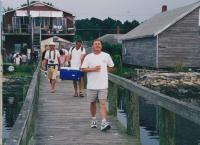
| Barnacle Bill's Bait and Tackle
Locals who know and understand this National Treasure
Located across the street from Fireman's Carnival Grounds
Boat parking on private 1000 foot pier
Call Today for the vacation of a lifetime
757-894-3746
 | |
The National Seashore
Assateague Island is a barrier island built by sand that persistent waves have raised from the ocean's gently sloping floor. Constant reshaping mirrors a restless origin, as steady winds continue moving trillions of sand grains, each a bit of eroded ancient Appalachian Mountains.
| 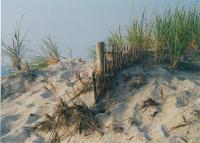
| Occasional storms drive waves and sands so forcefully that beach and shoreline changes dramatically. But Assateague's summer mostly means the lure of beaches and mild surf where shorebirds grace the lapping waves back down to the beach.
Behind the dunes, the island's forests and bayside marshes invite exploration. |
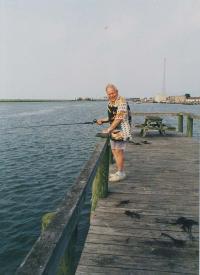
| Now and then a wild pony wonders into view. Assateague Island consists of three major public areas: Assateague Island National Seashore, managed by the U.S. Fish and Wildlife Service; and Assateague State Park, managed by Maryland's Department of Natural Resources. Assateague Island National Seashore is administered to provide for recreational use and enjoyment consistent with the maintenance and perpetuation of the seashore's natural communities. Together, these agencies hold in trust a priceless seashore heritage of wild lands, wildlife, and outdoor recreation.
|  |
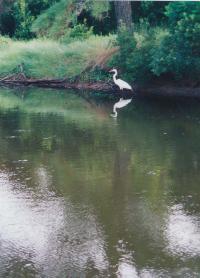
| Birding
Although birds abound throughout Assateague, birders usually find more opportunities in the Virginia portion of the island. In summer, the refuge's freshwater impoundments combine with marshes all along Assateague to host a variety of herons, egrets, and other wading birds. Terns dive for fish and gulls and sandpipers work the beaches and mudflats. Warblers and other passerine species are found in shrub thickets and pine forests. Late summer brings migrating shorebirds and peregrine falcons to the island. Thousands of waterfowl winter here, especially snow geese, black ducks, mallards, and pintails. Scoters, oldsquaws, and other sea ducks are sometimes seen in Toms Cove or Assateague Channel. Obtain a bird checklist at Barnacle Bill's Bait and Tackle.
| 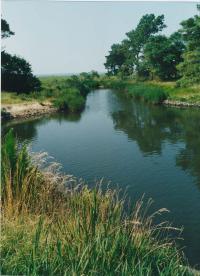
|
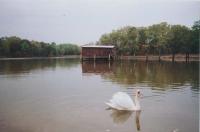
| The piping plover
The piping plover, a threatened species, nests at Assateague. Special nesting area restrictions may apply. Ask Barnacle Bill or any visitor center.
| 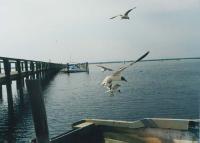 |
| Backcountry Camping
There are several backpack and canoe-access campsites on the island's Maryland end, each with a chemical toilet and picnic table but no drinking water. There is no fee. The three ocean side sites are available to hikers. The four bay side camps are available February 1 to October 31 and may be used by hikers or canoeists. |
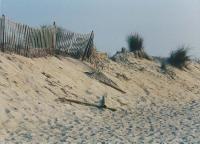 |
Ocean sites are open inner-dunes; bay sites sit among pine trees. Reservations are not necessary, but parking and backcountry-use permits are required and must be obtained by mid-afternoon. The nearest ocean side camp is 4 miles from parking. Write for free "Assateague Backcountry Camping" information to fishing@barnaclebillsbait.com. |

| The Town of Chincoteague is an island community, which encompasses all of Chincoteague Island.
Chincoteague Island, and its sister, Assateague Island, are barrier islands along the Atlantic Ocean on Virginia's Eastern Shore.
The Town of Chincoteague is Virginia's largest family island resort. The Town of Chincoteague is truly "Virginia's Quaint Paradise".
| 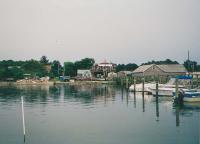 |
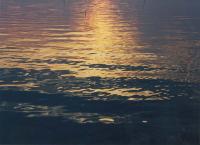
| 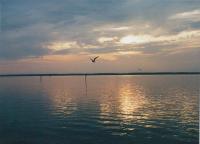
| 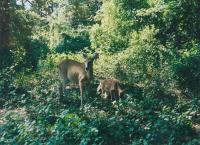
|
Wild Horses
Two herds of wild horses known as "ponies" by an adoring public make their homes on Assateague Island. The herds are separated by a fence at the boundary between Maryland and Virginia. In Maryland, horses are often seen around roads and campgrounds. In Virginia, look for them in Black Duck Marsh from observation platforms along Beach Road and Woodland Trail. The Maryland herd is managed by the National Park Service. The Virginia herd is owned by the Chincoteague Volunteer Fire Company and allowed by permit to graze on Chincoteague refuge. |
Each year horses from the Virginia herd are rounded up and many of the foals are sold at the Pony Penning and auction, held on teh last Wednesday and Thursday of July. Proceeds from the auction help support the fire company. Today's wild horses on Assateague Island are descended from domesticated stock that was grazed on the island as early as the 17th century by Eastern Shore planters. The planters grazed their horses here to avoid mainland taxes and fencing requirements. Only slightly smaller than many other horses, these shaggy, sturdy animals are well adapted to their harsh seashore environment. |
Marsh and dune grasses supply the bulk of their food; they obtain water from freshwater impoundments or natural ponds. Their social organization, behavior, and communication habits are explained in publications available at Barnacle Bill's Bait and Tackle and various visitor centers. Although domestic in their distant origins, these horses are wild today. Respect them as such and view them only from a safe distance. While usually appearing docile, they are prone to unpredictable behavior and can inflict serious wounds both by kicking and by biting. Do not feed or pet the horses. |
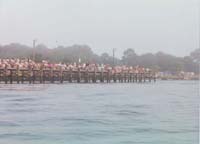
| 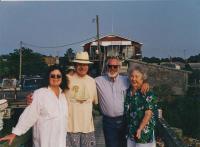
| 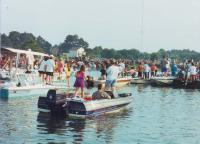 |
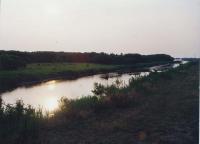
| 
| 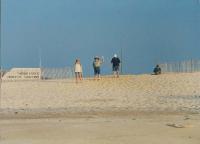 |
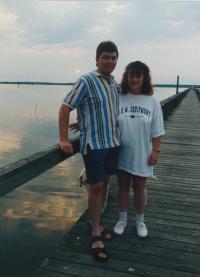
| 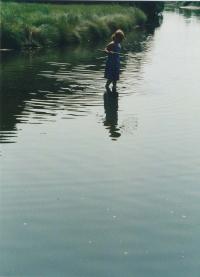
| 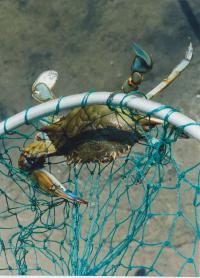 |